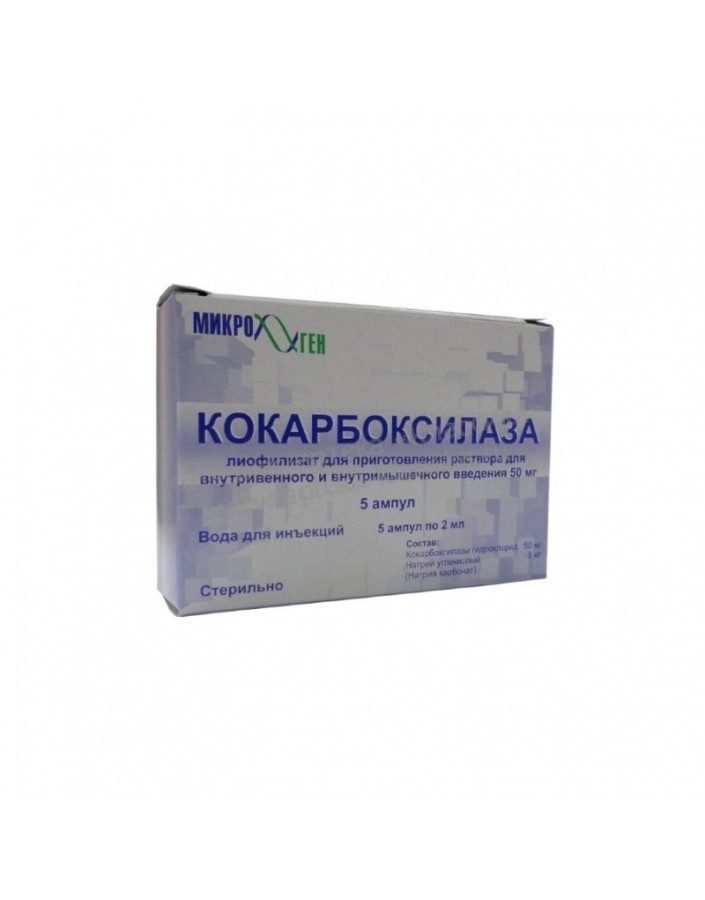




Security policy (edit with Customer reassurance module)

Delivery policy (edit with Customer reassurance module)

Return policy (edit with Customer reassurance module)
Mechanism of actionCoenzyme formed in the body from thiamine. It has a metabolic effect, activates tissue metabolism. In the body it is phosphorized to form mono-, di-, and triphosphoric esters, cocarboxylase is part of enzymes catalyzing the carboxylation and decarboxylation of keto acids, pyruvic acid, promotes the formation of acetyl coenzyme A, which determines its participation in carbohydrate metabolism. Participation in the pentose cycle indirectly contributes to the synthesis of nucleic acids, proteins and lipids. It improves the assimilation of glucose, the trophicity of the nervous tissue, contributes to the normalization of the CVS function. A deficiency of cocarboxylase causes an increase in the level of pyruvic and lactic acids in the blood, which leads to acidosis and acidotic coma. Indications and usageMetabolic acidosis, acidosis during hyperglycemic coma, liver and / or kidney failure, acidosis in pulmonary and pulmonary heart failure, heart failure, ischemic heart disease, predinfarktnoe state, myocardial infarction, myocardial infarction (in combination therapy), acute and chronic alcoholism, poisoning, intoxication with cardiac glycosides and barbiturates, infectious diseases (diphtheria, scarlet fever, typhoid fever, paratyphoid fevers), neuralgia, multiple sclerosis, peripheral neuritis.In children in the neonatal period: perinatal hypoxic encephalopathy, respiratory failure, pneumonia, sepsis, hypoxia, acidosis. V / m or / in (jet or drip). The contents of the ampoule (0.025 or 0.05 g) immediately before use are dissolved in 2 ml of water for injection. For IV injection, the volume of the solution should be increased to 10-20 ml, for drip administration - to 200-400 ml (by adding 0.9% sodium chloride solution or dextrose solution). For diseases of the heart, 0.1-0.2 g / day is administered for 15-30 days. When circulatory failure - 0.05 g for 2 h before the use of digitalis drugs 2-3 times a day. In case of diabetes mellitus (acidosis, coma), the daily dose is 0.1-1 g. In acute renal-hepatic insufficiency, acute poisoning and burns - in / in jet, 0.1-0.15 g 3 times a day or drip (5% dextrose ), at 0.1-0.15 g / day. With peripheral neuritis and multiple sclerosis - in / m, at a dose of 0.05-0.1 g / day for 1-1.5 months. Children - in / m, in / in (drip or jet), the newborn - sublingually. Children up to 3 months - 0.025 g / day, from 4 months to 7 years –0.025-0.05 g / day, from 8 to 18 years –0.05-0.1 g / day. The duration of treatment is from 3-7 to 15 days. Adverse reactionsAllergic reactions (urticaria, pruritus), with the / m administration - hyperemia, itching, swelling (at the injection site). ContraindicationsHypersensitivity. Drug InteractionsEnhances the cardiotonic action of cardiac glycosides and improves their tolerability. |
